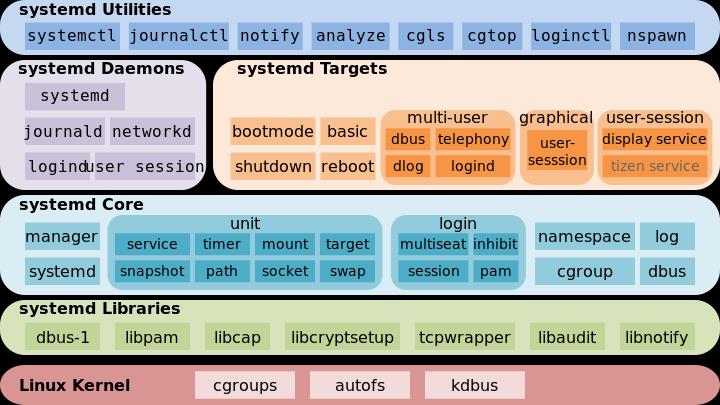
Systemd Developing Its Own Linux Distribution
The world of Linux has witnessed a shift with the announcement of Systemd's plans to launch its own Linux distribution, dubbed ParticleOS. This move has piqued the interest of many in the open-source community, given Systemd's significant influence within the Linux ecosystem. Known for its role in managing system processes, services, and init systems, Systemd has become a core component in many popular Linux distributions. The launch of ParticleOS has sparked speculation about what this move means for the future of system management and Linux itself.
Systemd, which was initially met with resistance due to its drastic departure from traditional init systems, has gained widespread adoption over the years. It is now an integral part of major Linux distributions, including Fedora, Ubuntu, and Debian. The decision to create a dedicated distribution signals Systemd's desire to offer a more cohesive and streamlined Linux experience, one where its tools can work seamlessly together in a purpose-built environment. But while the move is being hailed by some, it raises several questions regarding the broader impact on the Linux landscape and its relationship with other major players in the field.
The driving force behind ParticleOS appears to be the ambition to enhance Linux's flexibility and performance through deeper integration of Systemd's ecosystem. As one of the most widely used init systems, Systemd has a complex structure that handles critical tasks such as service management, logging, and networking. By developing its own distribution, the creators of Systemd aim to tighten control over the Linux boot process, improve system performance, and create a unified user experience that aligns closely with Systemd's underlying philosophy.
See also European Union Explores Development of Sovereign Linux-Based Operating SystemOne of the key features of ParticleOS will be its minimalist design, focusing on efficiency and scalability. Systemd's control over the distribution could lead to a more refined system that performs optimally in a range of use cases, from embedded devices to large-scale servers. This is in contrast to the existing Linux distributions, which often rely on various components that are developed by different teams, resulting in occasional compatibility and performance issues. The integrated approach of ParticleOS promises to alleviate some of these concerns by providing a more cohesive system that works in harmony with Systemd's suite of tools.
However, the move has not been without its detractors. Many in the Linux community have expressed concerns about the centralisation of control. While Systemd's supporters argue that the project has been essential in modernising Linux, others fear that the creation of a new distribution under its banner could further concentrate power in the hands of a single entity, potentially undermining the open-source philosophy that has been central to Linux's success. Critics also argue that the growing influence of Systemd in the ecosystem could reduce the diversity of approaches and options available within the Linux world, especially with regard to init systems and process management.
The rise of Systemd has already shifted the balance in the Linux ecosystem, particularly among those who prefer the traditional Unix philosophy of simplicity and modularity. Many Linux distributions, including Devuan and Alpine Linux, have opted for alternative init systems, rejecting Systemd's dominance. ParticleOS may, in some ways, deepen these divides, as users of more lightweight or minimal distributions might see it as a step towards a more monolithic approach to system design.
See also Vivaldi Integrates Proton VPN for Enhanced User PrivacyDespite these concerns, the potential benefits of ParticleOS cannot be ignored. By leveraging its existing expertise in system management, Systemd could create a distribution that offers superior reliability, performance, and customisability. In particular, it could appeal to developers and enterprises looking for a more predictable and stable Linux environment, with fewer external dependencies and greater integration between the system components. As the popularity of containerisation and microservices continues to grow, there could be strong demand for a distribution that focuses on efficiency and performance.
While it is still in the early stages of development, ParticleOS has already generated significant buzz within the tech community. Systemd's track record of managing critical aspects of system operations, coupled with its widespread usage, has positioned it as a formidable force within the Linux world. The success of ParticleOS could potentially redefine how Linux distributions are developed and managed, with a greater emphasis on uniformity and performance optimisation.
The broader Linux community will likely be watching closely as ParticleOS takes shape. Its development will offer important insights into the future of systemd and its role within Linux. As a piece of software that has become synonymous with reliability and stability, Systemd has shown that it can manage some of the most crucial aspects of modern computing. By expanding into the realm of distributions, it is pushing the boundaries of what is possible in terms of customisation, control, and performance.
Notice an issue? Arabian Post strives to deliver the most accurate and reliable information to its readers. If you believe you have identified an error or inconsistency in this article, please don't hesitate to contact our editorial team at editor[at]thearabianpost[dot]com . We are committed to promptly addressing any concerns and ensuring the highest level of journalistic integrity. Legal Disclaimer:
MENAFN provides the
information “as is” without warranty of any kind. We do not accept
any responsibility or liability for the accuracy, content, images,
videos, licenses, completeness, legality, or reliability of the information
contained in this article. If you have any complaints or copyright
issues related to this article, kindly contact the provider above.






















Comments
No comment